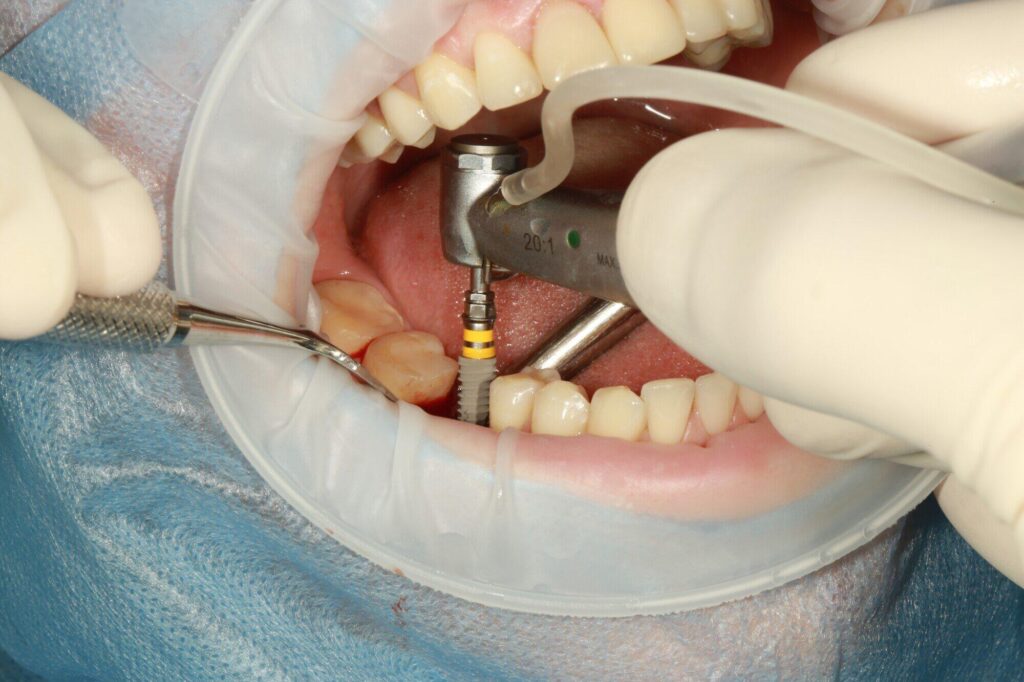A dental implant is a solution that restores both confidence and oral function. People seeking a reliable replacement for missing teeth often explore it to regain normal chewing and a natural smile. Understanding this option fully can help make informed choices for long-term dental health.
Choosing a dental implant can transform daily life. It provides stability for speaking and eating without worry. Many individuals find comfort knowing their oral structure is secure and supported for the future.
In this blog, we will share a complete guide to dental implant treatment and care. Read more!
Types of Dental Implants: Which One is Right for You?
Dental implants come in different forms to meet individual needs. Some attach directly to the jawbone, while others support multiple teeth. Each type has unique qualities that suit specific situations.
Choosing the right dental implant involves evaluating your oral structure and preferences. Your dentist may suggest traditional implants, mini implants, or implant-supported dentures, depending on your case. Understanding options can guide your decision confidently.
Every dental implant type interacts differently with the gums and jaw. Some require more healing time, while others provide faster results. Discussing each option with your dentist ensures the best outcome for your oral health.
Who is a Candidate for Dental Implants?
Most adults with good oral health can consider dental implants. Healthy gums and enough jawbone density are key factors for success. People with chronic conditions may need special evaluation.
Candidates should maintain regular dental hygiene to reduce complications. Those with missing teeth for extended periods may require preparatory treatments. Your dentist evaluates your mouth and overall health before starting.
Age is not usually a barrier to dental implants. Even older adults can benefit from this solution with proper care. Consulting your dentist ensures you are a suitable candidate for safe treatment.
The Dental Implant Procedure: Step-by-Step
The dental implant procedure starts with a detailed evaluation. Your dentist examines your oral structure and plans the placement. Imaging tools like X-rays or CT scans guide precise positioning.
During the surgery, a titanium post is inserted into the jawbone. This serves as the root for the replacement tooth. Over time, the jawbone fuses with the implant, ensuring stability.
Once the post is secure, an abutment is attached. A crown or implant-supported denture completes the restoration. Each stage is carefully monitored for proper healing and alignment.
Preparing for Your Dental Implant Surgery
Preparation is key to a smooth dental implant procedure. Your dentist may recommend blood tests or imaging. These help predict potential challenges during surgery.
You may be asked to adjust medications or avoid certain foods. Clear instructions reduce risks and ensure better outcomes. Following your dentist’s guidance sets the foundation for a successful treatment.
Planning for dental implant recovery includes arranging transportation and rest time. Preparing your home with soft foods and comfort items helps ease post-surgery care. Awareness of the recovery process improves confidence and readiness.
Recovery After Dental Implants
Dental implant recovery varies but usually follows predictable stages. Understanding what to expect helps you manage discomfort. Staying informed ensures your mouth heals properly.
Expected Healing Timeline
Healing occurs gradually after the dental implant procedure. Initial recovery may take one to two weeks, while full osseointegration may last several months. Patience and proper care are essential for success.
Bone and gum tissues strengthen around the implant during recovery. This integration secures the implant firmly in place. Following your dentist’s schedule ensures the process stays on track.
During recovery, minor swelling and soreness are normal. These symptoms decrease with proper care and rest. Monitoring changes ensures your healing remains smooth and predictable.
Managing Discomfort and Swelling
Pain after surgery can be managed with recommended medications. Cold compresses may reduce swelling effectively. Avoiding strenuous activity helps minimize complications during early healing.
Maintaining a soft diet supports dental implant recovery. Gradually reintroducing solid foods prevents stress on the implant site. Gentle oral hygiene ensures infection control and comfort.
Checking in with your dentist during recovery is crucial. They may adjust your care plan for optimal results. Staying proactive protects both your health and implant success.
When to Contact Your Dentist
Reach out immediately if severe pain occurs. Unusual bleeding or persistent swelling may indicate issues. Timely communication prevents minor problems from escalating.
Signs of infection should never be ignored. Redness, warmth, or discharge around the implant warrants professional evaluation. Early intervention ensures recovery continues smoothly.
Your dentist can also address concerns about implant-supported dentures. Correct fit and alignment contribute to comfort and durability. Regular follow-ups protect long-term dental health.
Risks and Complications: What You Need to Know
Dental implants are generally safe but may have risks. Infection, nerve damage, and implant failure are uncommon but possible. Awareness helps patients make informed decisions.
Smoking and certain medical conditions increase complication chances. Your dentist assesses risk factors before recommending a procedure. Proper planning reduces the likelihood of issues.
Complications often resolve with prompt treatment. Monitoring the surgical site is essential. Staying informed about potential risks ensures your dental implant procedure remains successful.
Post-Implant Care and Maintenance
Proper post-implant care ensures long-term success. Understanding dental implant maintenance improves your oral health. Regular follow-ups and hygiene habits are key to lasting results.
Daily Oral Hygiene Practices
Brushing and flossing around implants prevents plaque buildup. Use soft brushes and low-abrasive toothpaste to protect the implant. Consistency reduces the risk of infection and irritation.
Rinsing with antiseptic mouthwash can aid healing. Gentle cleaning supports gum health and implant stability. Combining techniques strengthens overall oral hygiene.
Monitoring implants for changes ensures early detection of issues. Catching problems early prevents complex interventions. Consistent care preserves dental implant functionality.
Diet Tips for Healing
A balanced diet supports tissue regeneration after surgery. Soft foods reduce strain on implants during initial recovery. Gradually return to normal eating habits as healing progresses.
Avoid excessively hard or sticky foods that may disrupt the implant site. Hydration aids recovery and gum health. Maintaining a nutrient-rich diet accelerates healing and strengthens tissues.
Consult your dentist about specific dietary adjustments. Tailored guidance ensures optimal recovery. Following recommendations reinforces the success of your dental implant procedure.
Lifestyle Adjustments During Recovery
Making small lifestyle changes helps ensure proper healing. Avoid smoking and limit alcohol during the recovery period. These adjustments support bone and gum integration for long-term implant success.
Rest and gentle activity are important for recovery. Overexertion can slow healing or increase discomfort. Maintaining a calm routine helps your body focus on repairing tissues.
Stress management and adequate sleep also support recovery. A balanced lifestyle contributes to faster dental implant recovery. Following these habits promotes comfort and optimal results.
Routine Check-Ups for Longevity
Regular dental visits maintain implant health. Professional cleanings remove buildup unreachable at home. Early detection of issues ensures long-term stability.
Monitoring implant-supported dentures for wear prevents complications. Adjustments enhance comfort and prevent damage. Check-ups are integral to maintaining dental implants.
Routine care also identifies early signs of gum disease. Proactive management preserves oral health. Following a schedule secures the longevity of your investment.
Cost and Insurance Coverage for Dental Implants
Dental implants are a long-term choice for healthy teeth and gums. The total cost can change depending on the materials, the complexity of the case, and the dentist’s experience. Knowing what to expect helps avoid surprises and plan.
Insurance may cover parts of the dental implant procedure. Patients should check if surgery, crowns, or implant-supported dentures are included. Understanding coverage helps manage costs and make smart financial decisions.
Many dental offices offer payment plans or other ways to pay over time. Planning for dental implant recovery and maintenance reduces stress. Being prepared makes the treatment easier and more comfortable for patients.
Choosing the Right Dental Implant Specialist
Finding the right specialist ensures safe and successful dental implant recovery. Expertise affects outcomes and patient comfort. A thorough selection process improves satisfaction.
Experience and Credentials
Choosing a skilled dental professional is vital when you want to replace missing teeth with implants. Dentists with proper training and years of experience provide safer and more reliable care. Checking their credentials helps you feel confident in your treatment plan.
Look for providers who have completed advanced education in implantology. Specialized training ensures they understand both surgical placement and restorative techniques. Experienced dentists can handle even complex cases with precision.
Patient success stories reflect a provider’s expertise. Positive feedback and consistent results show their competence. Selecting a dentist with strong experience ensures smooth treatment and effective outcomes.
Patient Reviews and Testimonials
Patient reviews and testimonials offer insight into the quality of care for dental implants. Reading real experiences helps new patients feel confident about their choices. Positive feedback highlights both the skill and professionalism of the dental team.
Testimonials often describe smooth procedures and successful outcomes. They show how patients regained comfort and function after treatment. Sharing these experiences provides reassurance for those considering implants.
Consistent praise across reviews reflects a provider’s expertise and reliability. Patients often mention clear communication and excellent support. Choosing a practice with strong testimonials supports a positive treatment journey.
Questions to Ask Before Treatment
Before proceeding with dental implants, asking the right questions is important. Patients should inquire about the procedure, recovery time, and long-term care. Clear answers help set realistic expectations and ease concerns.
It is helpful to ask about the dentist’s experience and success rates. Understanding their approach ensures confidence in the treatment. Questions about costs, insurance, and alternative options provide a full picture of care.
Discussing potential risks and post-procedure care is essential. Knowing what to expect helps patients feel prepared and supported. Asking questions builds trust and ensures a positive experience with dental implants.
Communication and Patient Support
Effective communication is essential for a positive dental implant experience. A dentist who listens and explains each step clearly reduces patient anxiety. Supportive staff and open channels for questions improve comfort and confidence.
Patients should feel encouraged to discuss concerns at any stage. Clear guidance before, during, and after treatment helps manage expectations. Feeling supported contributes to better recovery and satisfaction with the procedure.
Ongoing communication also allows patients to report any issues early. Quick responses prevent minor concerns from becoming complications. Choosing a dentist with strong support practices enhances the overall experience.
Alternatives to Dental Implants
Other choices exist for people who have missing teeth. Bridges, partial dentures, or temporary prosthetics can help in different situations. Each choice has its own benefits and limits, so it is important to learn about them.
Some patients choose non-surgical options because of health issues or cost concerns. Talking with a dentist helps find the best solution. Knowing all the options helps patients make smart decisions for their mouth.
Alternative treatments can also help during dental implant recovery. Temporary prosthetics keep the mouth working well and looking natural. Considering all options supports good oral health and makes the process easier and safer.
Long-Term Benefits of Dental Implants
Dental implants restore confidence and oral function effectively. They provide a natural look and feel. Here are some of the long-term benefits that make them a preferred choice for many patients.
Preservation of Jawbone and Facial Structure
Dental implants help maintain jawbone density and prevent bone loss. They support surrounding teeth and preserve facial contours. This contributes to a natural, healthy appearance over time.
Enhanced Oral Function and Comfort
Implants restore normal chewing, speaking, and biting ability. They feel and function like natural teeth. Patients experience improved comfort compared to removable dentures.
Durability and Longevity
With proper care, dental implants can last decades. Regular maintenance and check-ups ensure long-term success. This makes them a reliable, lasting investment in oral health.
Why a Dental Implant is the Right Choice
A dental implant provides a reliable solution for missing teeth and long-term oral health. It restores natural function, allowing comfortable chewing and confident speaking. Patients often feel more secure knowing their teeth are stable and supported.
Choosing a dental implant encourages consistent oral care and regular check-ups. Proper maintenance ensures durability and prevents future complications. Speak with your dentist today to explore if a dental implant is the right solution for your smile.
Did this article help you? Browse our blog for more interesting topics.






